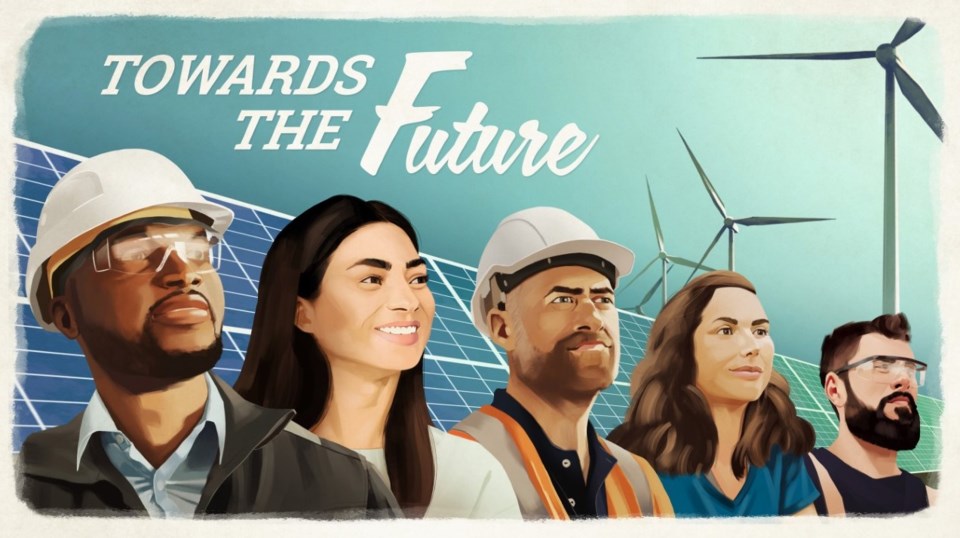The latest IPCC report, just out, has one clear message: to re-stabilize the world’s climate and avert global catastrophe, what has to change? “Everything, everywhere, all at once.” Not slowly, not phased in, but right now, and we have everything, EVERYTHING we need to do it.
Elon Musk (Tesla, SpaceX, etc.) is certainly a very controversial engineering genius, but he has a plan. Like him or hate him, I think he is actually doing what needs to be done. Lots of talking, but only he is actually doing. Really doing, right now, really fast.
Earlier this month he outlined his plan for a sustainable energy civilization on . His plan will work. It is already working. Here is a summary:
A clear path
“There is a clear path to a fully sustainable Earth, with abundance,” says Musk. “In fact you could support a civilization much bigger than eight billion humans. I am often shocked and surprised by how few people realize this.”
Most people assume that when we convert from fossils to an electric civilization, the same amount of energy is required to do what we need to do. This is not true. He points out that over 80% of global energy now comes from fossil fuels, but only one third of that energy delivers useful work. The rest is waste heat.
When you consider the efficiencies of electrification, the actual amount of energy needed to run the world is cut by half. This makes things a lot easier than most people think.
“A sustainable energy economy is within reach and we should accelerate it,” he says. I agree.
What do we need?
What do we need for a sustainable energy world? Elon and his team have run the numbers: 240 TWh (terawatt hours) of storage, 30 TW of renewable power, and $10 trillion in manufacturing investment.
Is this doable? The total world economy is just under $100T, so if this $10T investment is spread out over 10 years it would take one per cent of the global economy, over 20 years, half a per cent. Yes, this is doable.
Key steps
-
Filling the existing grid with renewable energy reduces fossil use by 35%. The land area needed for 30 TW of wind and solar would be less than 0.2% of the earth’s land area. This transition has begun: 60% of the generation added to the US grid was solar in 2022. World wide solar is growing 50% year on year, wind is close behind.
-
Switching to electric vehicles reduces fossil fuel use by 21%. EVs are four times more energy efficient than gas cars, that is, getting the energy from “well to wheel” and then transferring that energy to motion on the road. Resource extraction for batteries will decrease over time. Lithium, for instance, can be recycled indefinitely. “The electrified economy will require less mining than the current economy does. Less, not more.” Overall EV production grew 59% year on year in 2022.
-
Switching to heat pumps for residential and commercial heating and cooling will reduce CO2 emissions by 22%. Heat pumps use 1/3 of the energy of combustion heating. Heat pumps now supply about 10% of overall heating needs, growing by about 10% per year. This is too slow and needs to be accelerated.
-
High temp heat storage for industrial processes will reduce carbon emissions by 17%. All manufacturing processes (even steel making) can be done with renewable electricity and green hydrogen.
-
Sustainable fuel for planes and boats will reduce carbon emissions by 5%. Long haul ships can now be battery powered by existing lithium iron phosphate batteries. Energy density is harder for long haul planes but short haul planes are doable today. New zero carbon aviation fuels are also under development and are now becoming available.
How fast?
How fast does all this need to grow? Solar and wind deployment three times, battery production 29 times, EV production 11 times. “All these gaps are going to close very quickly, especially as momentum for the transition to sustainable energy accelerates,” says Musk.
Over the last 20 years we invested $14 trillion in new fossil fuel infrastructure. Building a sustainable energy economy will cost about 60% less than trying to meet the same energy goals with fossil fuels. In other words, making this happen will cost less than just carrying on as usual, much less.
“The main message today is not just for Tesla investors who own stock, but really anyone who is an investor in Earth. What we are trying to convey is a message of hope and optimism. Optimism that is based on actual physics and real calculations not wishful thinking. Earth can and will move to a sustainable energy economy and will do so in your lifetime.”
Well done Elon. Let’s make it so.
Don Pettit lives and writes in Dawson Creek and is Executive Director of the Peace Energy Cooperative.

